PROGRAM SCHEDULE 2014-2015
28th Season
| Sun |
Sep |
7 |
2:00 |
Vaughan Williams: London Symphony
The second symphony by English composer Ralph Vaughan Williams was
designated by the composer himself as “A London Symphony”
and is rarely referred to as “Symphony No. 2”. Composed
from 1912 to 1913, the symphony was first performed in 1914. During
World War I, the original four-movement score, which had been sent
to a conductor in Germany, was lost. Vaughan Williams later
reconstructed and modified the work several times before it reached
its final form. Although Vaughan Williams insisted that the work be
listened to as absolute music, it does contain musical phrases
(such as the Westminster chimes) which are descriptive of various
locations in London.
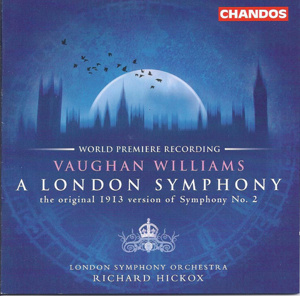
During the program we will have an opportunity to listen to the
original 1914 version in a recording made by the late Richard Hickox
for Chandos Records in 2001. This will be supplemented by other
Vaughan Williams works.
(ta&js/ta&js)
|
| Sun |
Oct |
12 |
2:00 |
Elgar: Dream of Gerontius
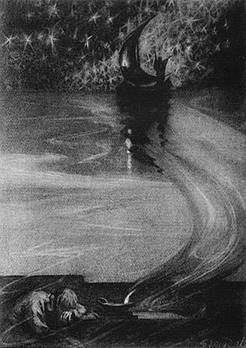
Widely considered to be Elgar’s finest choral work, The Dream of
Gerontius is a setting of a poem by John Henry Newman, an English Roman
Catholic Cardinal. It tells the story of the passage of a dying man’s
soul to judgement before God. This is a fine example of the late 19th century
English choral tradition and we will be listening to excerpts from several
celebrated CD recordings, including those of Sir John Barbirolli,
Sir Simon Rattle, and Vernon Handley.
(js&ta/js&ta)
|
| Sun |
Nov |
16 |
2:00 |
Rossini: William Tell
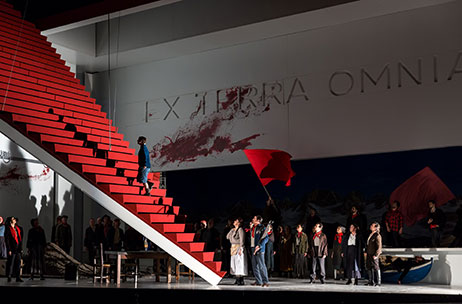
Guglielmo Tell (William Tell) is the last opera composed by the
Italian bel canto master Giaochino Rossini. Premiered on August 3, 1829, at
the Paris Opéra, this work is so far in advance of other operas of the time
that it is often considered to be one of the reasons that Rossini composed
no more operas although living for nearly forty more years. He had reached
the limit of what he could tell through the operatic medium. Although
containing the usual scenes, arias, and choruses that make up the flesh
and blood of bel canto opera, Guglielmo Tell also manages to produce musical
statements that look ahead to the operas of Verdi and even the music dramas
of Wagner. Using both audio and video examples, we will sample the wonders
that make up this final masterpiece of one of opera’s greatest composers.
320x425.jpg)
(js/ta)
|
| Sun |
Dec |
7 |
6:00 |
Festive Season Party

This is a Potluck Party. Please let us know what you will be bringing
in order to avoid duplicates. The kitchen is open to receive and prepare
food from 5:30 P.M. and the party starts at 6:00 P.M.
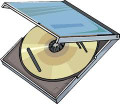
Your friends are welcome. Please bring your own drinks.
We will have our Christmas CD exchange. Please wrap a CD you would like
to exchange with one of the other members.
(/ta&js)
|
| Sun |
Jan |
18 |
2:00 |
Kent Nagano Conducts Beethoven
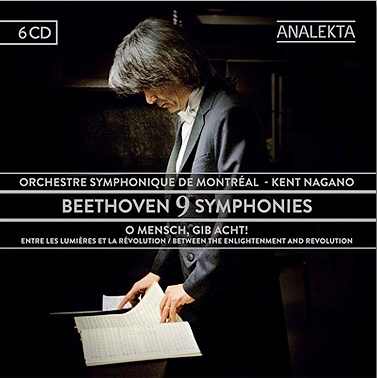
Kent Nagano, Music Director of the Orchestre Symphonique de Montréal,
has recently completed a project with Analekta to record all of the Beethoven
symphonies, coupling them with other orchestral pieces such as
The Creatures of Prometheus and the Incidental Music to Egmont.
To celebrate the occasion of Kent Nagano conducting Beethoven with
Tafelmusik Baroque Orchestra in Toronto, we will sample some of these
recordings to gain an understanding of Maestro Nagano’s personal
view of these masterworks.
Kent Nagano conducts Beethoven
Tafelmusik Baroque Orchestra
Thu Jan 22, Fri Jan 23, Sat Jan 24 at 8pm,
Sun Jan 25 at 3:30pm, 2015
Koerner Hall
Beethoven: Symphony No. 5
and Mass in C major, Op. 86
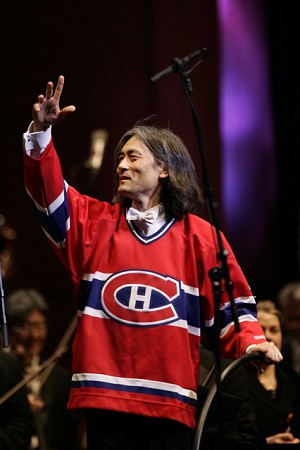
(ta&js/ta&js)
|
| Sun |
Feb |
15 |
2:00 |
Schubert's Symphonies
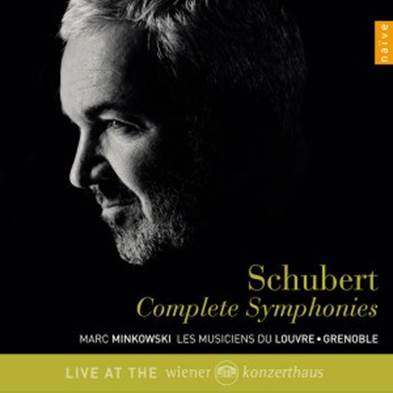
Following up on our recent program featuring Beethoven’s
symphonies, this program will present a survey of the symphonies
of Franz Schubert (1797-1828). One of the foundations of the
current symphonic repertoire, these works are a favourite of
conductors, orchestras, and audiences alike and are featured
regularly on concert programs the world over. This will be an
excellent opportunity to hear how conductors past and present
have tackled these early Romantic masterpieces.
(ta/js)
|
| Sun |
Mar |
15 |
2:00 |
Jukka-Pekka Saraste Conducts Maher
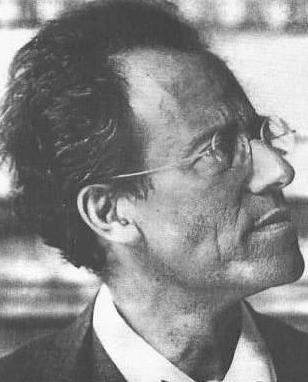
|
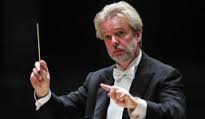
|
Young Finnish conductor Jukka Pekka Saraste (1956-) arrived in Toronto
as music director of the Toronto Symphony Orchestra in 1994. The TSO’s
publicist at that time commented with excitement “We have sexy, exotic
material to promote. This is first time we’ve had this kind of excitement
since Seiji Ozawa!” We have unforgettable memories of great concerts
in Toronto, but what has been happening since he left Toronto in 2001?
Saraste served as Principal Guest Conductor of the BBC Symphony Orchestra
(2002-2005), followed by a position as Music Director and Chief Conductor
of the Oslo Philharmonic Orchestra (2006-2013). Saraste has been Chief
Conductor of the WDR Symphony Orchestra, Cologne since 2010.
These tenures at European orchestras resulted in a rich catalogue of
recordings. Just to mention a few, Jukka-Pekka and the WDR Symphony
released their recording of Mahler’s Symphony No. 5 on the Profil
Hänssler label. The symphony was recorded live in the Cologne
Philharmonie. Their previous recordings include Mahler’s Ninth
Symphony and Schoenberg’s Pelleas und Melisande, as well as
Brahms’ First and Third Symphonies. With the Oslo Philharmonic
Orchestra, there is a monumental recording of Mahler’s Sixth Symphony.
On the occasion of his return engagement with the TSO (April 8 & 9, 2015,
Roy Thomson Hall) our program looks into Saraste’s successful career
development and artistic maturity.
(js&ta/js&ta)
|
| Sun |
Apr |
12 |
2:00 |
Scriabin Centennial
Believed to be a synesthetic (i.e., one who experiences sound sensations
as colour), Scriabin developed a theory of musical colour. Although this was
not a new concept — Newton had assigned each of the colours of the visible s
pectrum to one of the seven notes of the major scale — Scriabin expanded
this theory by associating a specific colour with each of the twelve notes
of the chromatic scale. One of his works, Prometheus: Poem of Fire,
actually calls for a clavier à lumières
(keyboard with lights). In an attempt to
recreate the effect of this instrument, some concert performances bathe
the auditorium in projected coloured lights corresponding to the colours
notated in the score. This colour concept led him to create many works in
which Schoenberg’s atonal music system is anticipated.
Scriabin’s musical expression was limited to a handful of orchestral
works and many piano works. In commemoration of the
100th anniversary of his death on April 27,
the program will feature examples from each of these areas and will conclude
with recorded excerpts from his unrealized work, Mysterium,
which was to have been a grand week-long performance including music,
scent, dance, and light in the foothills of the Himalayas Mountains that
was somehow to bring about the dissolution of the world in bliss.
(js/ta)
|
| Sun |
May |
17 |
2:00 |
Verdi's Requiem
(js&ta/js&ta)
|
Summer Season
|
Please note that summer programs are Saturdays at 7:00 P.M.
|
|
| Sat |
Jun |
6 |
7:00 |
Lulu
NOTE: PROGRAMME ON SATURDAY EVENING, NOT SUNDAY AFTERNOON!
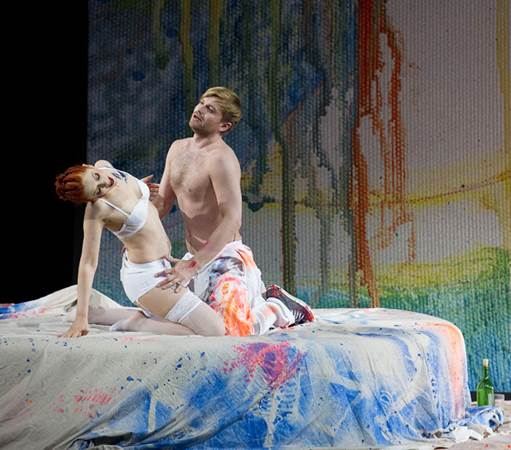
Nothing to be scared of! This is an evening filled with the gorgeously
sensual music of Alban Berg (1885–1935) in his anniversary year.
Berg’s last piece, the unfinished opera Lulu, is filled with
eroticism and violence; it is a masterpiece of this overripe,
end-of-century era. Lulu is a composition which is already stepping
into the realm of contemporary music, but no other opera can possibly
exceed Lulu as a true prima donna opera. Starting with Teresa Stratas,
who premiered the three-act completed version, Canadian sopranos such
as Rebecca Caine and Barbara Hannigan have taken the title role
internationally in recent performances of Lulu.
We will examine other
singers who had the courage to tackle this super-challenging character
in recent Blu-ray recordings with Christine Schäfer and Patricia Petibon.
(js&ta/js&ta)
|
| Sat |
Jul |
18 |
7:00 |
Mozart: String Quartets & Quintets
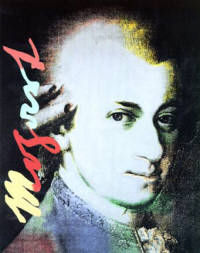
Mozart published his “Haydn Quartets” in 1785 and something
fundamentally changed in classical music. This was one of the first purely
artistic attempts in music, while other compositions were still acting as
the accompaniment to wealthy dinners and providing materials for commercial
concert series. The six “Haydn” String Quartets were written in
Vienna during the years 1782 to 1785 without performance plans and dedicated
to Joseph Haydn. On January 15 and February 12, 1785. Haydn first heard the
quartets in private gatherings at Mozart’s home. After hearing them
all, Haydn made a now-famous remark to Mozart’s father Leopold,
who was visiting from Salzburg: “Before God, and as an honest man,
I tell you that your son is the greatest composer known to me either
in person or by name. He has taste, and, what is more, the most profound
knowledge of composition.”
Profound indeed. Here in this set, Mozart bravely uses dissonance,
chromatic scales, and astounding rhythms. The Haydn set is filled with
musical experiments and achieves philosophical depth simultaneously.
Mozart exceeded his own artistic height In his great year of 1787 when the
first two superb late String Quintets (in C major, K.515, and in G minor,
K.516) came to life. Then, in 1789—1790, the two wonders of chamber music,
namely the Quintet in D major, K. 593, and the Quintet in his beloved
E-flat, K. 614, made their splendid appearance. The universe Mozart
created here was so much beyond his time and unveils a world of timeless
enigma.
Join us on a summer evening with the best of the chamber works by Mozart.
(js&ta/js&ta)
|
| Sat |
Aug |
8 |
7:00 |
BYOR
(js&ta/bs)
|
|

